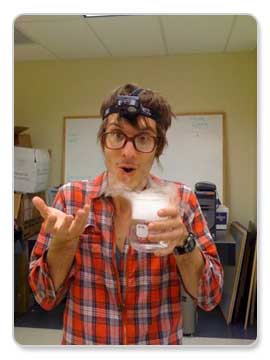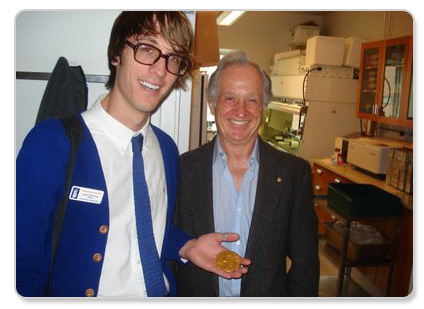Fellowship gives student new direction
Friday, February 5, 2010
Recent OSU graduate Bubba Brooks credits a summer research fellowship for helping
him re-direct his career.
Brooks, from Tulsa, became the first member of a group of Hispanic/Chicano and Native
American Scientists (SACNAS) to land the fellowship at the Division of Laboratory
Sciences at the Center for Disease Control and Prevention in Atlanta.
Brooks graduated in December 2009 with a degree in microbiology and a minor in ethics
and leadership, Brooks’ work at the center focused on analyzing the tar, nicotine
and carbon monoxide delivery systems of make-your-own cigarettes.
"My favorite part of my internship at the CDC was the quick gratification I got to
see with my research,” Brooks said. “Often times in science you don’t get to see the
affects of your work, but at the CDC I got to see my results directly affecting and
helping public health immediately.”
Through his research, Brooks got hands-on experience and became proficient in gas
chromatography, mass spectrometry and even learned how to smoke 16 cigarettes simultaneously,
with the help of a machine.
The research results showed that the cigarette’s tube type dictates how much carbon
monoxide is received by the smoker while tobacco type plays a noticeable but non-significant
role.
"I learned a lot about the tobacco industry,” Brooks said. “The research is much more
complex than just ‘smoking is bad,’ it is actually a complex and continuous field
of study.”
Brooks encourages all students to get involved with research and said that any opportunity
should be considered beneficial.
“Whether required for a class at OSU or outside of OSU, doing research gives students
a different perspective other than what can be learned in a classroom,” Brooks said.
“It can also open your eyes to a career path you may have never known you were interested
in.”
Brooks, who had planned to attend Medical School before participating in scientific
research, has decided instead to stay in the research field.
Dr. Robert Miller, Regents Professor of Microbiology & Molecular Genetics at OSU,
is Brooks’ mentor. “It’s not very often that an undergraduate comes to me with a research
idea looking for a home,” Miller said. “But that’s what Bubba did. He is an exceptional
and unique young man and it’s a pleasure to know him.”
Since graduating in December, Brooks has been applying to graduate schools and will
start in the fall after spending the summer in Paris as a bicycle guide.
For more information about the Division of Laboratory Sciences at the Center for Disease
Control and Prevention visit www.cdc.gov/nceh/dls <http://www.cdc.gov/nceh/dls> .


